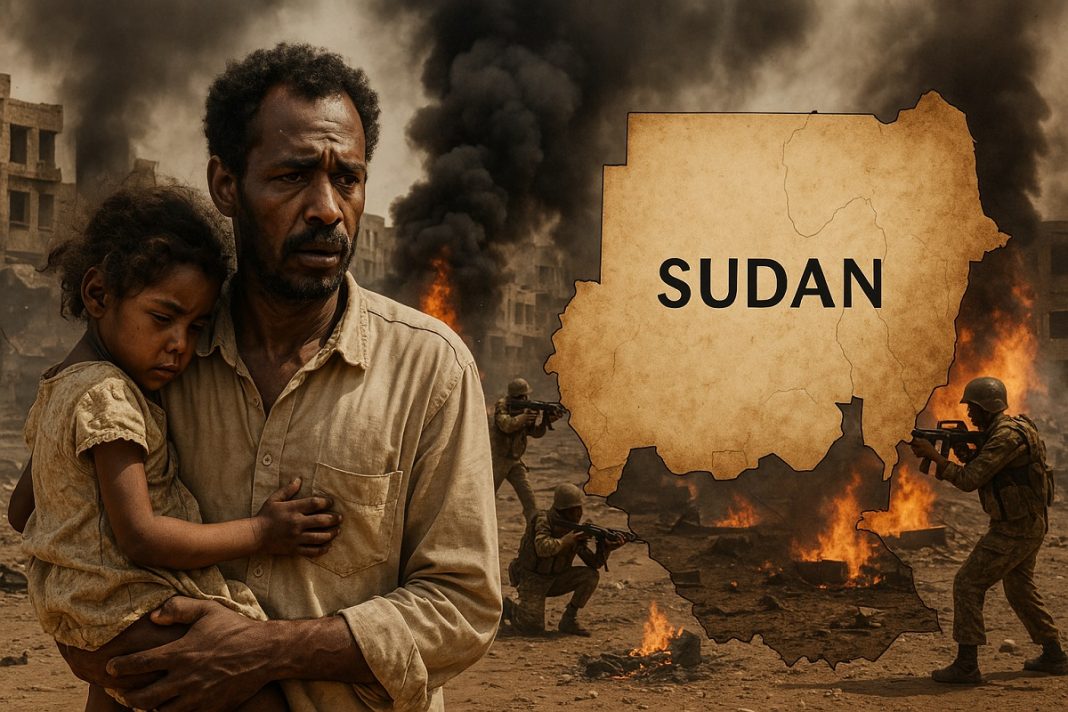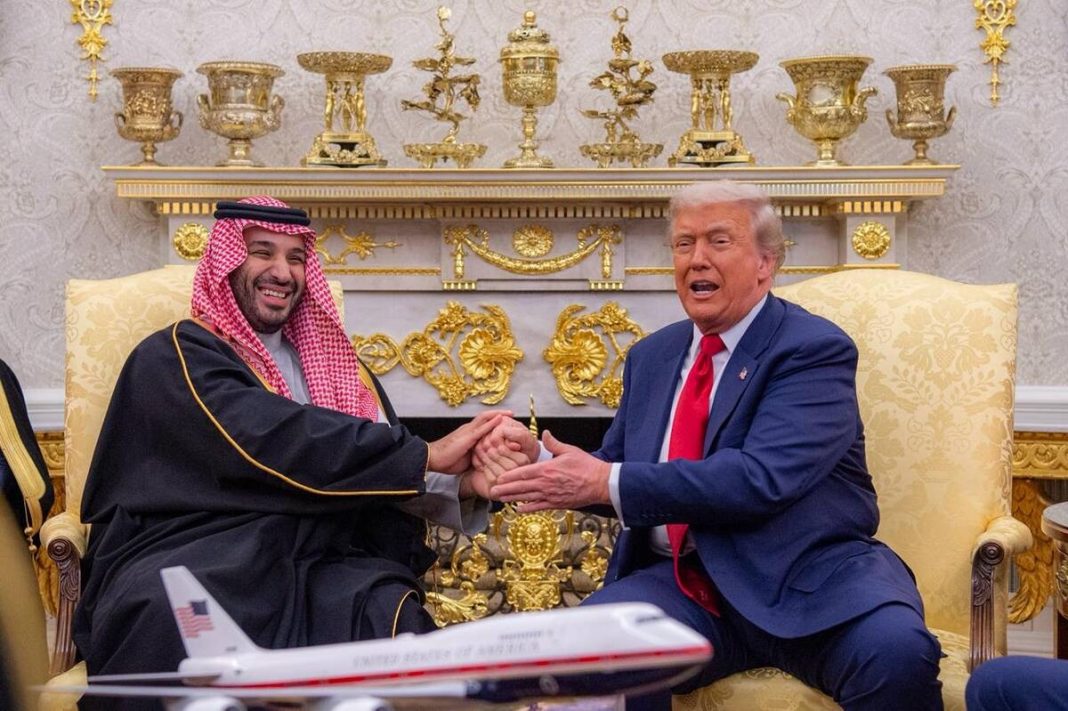Gabriel G Tabarani
Sudan stands today at the threshold of a national collapse so deep and far-reaching that it threatens not only the future of its people but the stability of an entire region. For more than two years, the country has been torn apart by a devastating war between the Sudanese Armed Forces and the Rapid Support Forces—an explosion of violence born from a failed democratic transition and decades of political decay. What began as an institutional dispute has metastasized into one of the deadliest conflicts of our time, with more than 150,000 killed and over 13 million uprooted from their homes. Yet somehow, Sudan remains trapped on the margins of the world’s attention.
It was only recently—after a meeting with Saudi Crown Prince Mohammed bin Salman—that former U.S. President Donald Trump announced he would seek to “end the war” in Sudan. The statement, sudden and unexpected, briefly thrust the country back into international discussion. But it also exposed an uncomfortable truth: Sudan enters the global spotlight not because the scale of its suffering demands it, but because its tragedy occasionally intersects with the political priorities of powerful states. The disconnect between the magnitude of Sudan’s crisis and the world’s response remains staggering.
The roots of Sudan’s collapse stretch back years. After the ouster of longtime dictator Omar al-Bashir, the hopes of a post-revolutionary Sudan were entrusted to a fragile power-sharing arrangement between civilians and the very security forces that had long dominated the state. It was a transition built on wishful thinking. The Sudanese Armed Forces and the Rapid Support Forces—uneasy partners from the outset—never shared a common vision of the country’s future. When the question arose of integrating the RSF into the national army, trust evaporated, and the simmering tensions ignited into open war.
Since then, Sudan’s descent has been swift and brutal. Khartoum, once a bustling metropolis, has become a battleground of abandoned streets and ruined buildings. But the most horrifying scenes have unfolded in Darfur, where the RSF, drawing on a legacy rooted in the janjaweed militias of past atrocities, has carried out campaigns of mass killing, sexual violence, forced displacement, and the systematic destruction of entire communities. Satellite imagery shows what appear to be mass graves; survivors describe door-to-door executions and assaults meant to erase communities rather than defeat combatants.
The human cost is almost immeasurable. More than half the population now requires humanitarian assistance. Millions of families are trapped between hunger and violence, while refugee camps in Chad and South Sudan are filled with survivors recounting stories of unimaginable brutality. Children have witnessed the killings of their parents; women have endured assaults used as a weapon of terror; many arrive at the borders silent, traumatized, unable to process what they have lived through. These wounds—psychological, social, generational—will linger long after the guns fall silent.
Despite this, the international response has been hampered by geopolitical contradictions. Saudi Arabia has attempted to revive the Jeddah talks and retains channels with both sides of the conflict. Egypt, for its part, backs the Sudanese Armed Forces, viewing the army as a bulwark against regional instability. The United Arab Emirates has repeatedly faced accusations—denied by Abu Dhabi—of providing support to the RSF. Other global powers remain divided, distracted, or simply unwilling to expend political capital on a conflict that offers little immediate strategic payoff. Sudan has become a theater where competing interests collide, and where humanitarian imperatives too often come last.
It is in this context that Trump’s remarks take on a dual meaning. On one hand, they signal a long-absent recognition that Sudan requires active international engagement. On the other, they underscore how dependent Sudan has become on the political whims of actors who, until now, have allowed the crisis to deepen unchecked. Ending Sudan’s war demands more than declarations. It demands pressure—coordinated, sustained, and backed by consequences.
If the world is serious about preventing Sudan’s disintegration, several steps are imperative. First, the flow of weapons to all parties must be halted. Without cutting off the supply lines that sustain this war, any diplomatic effort is doomed from the outset. Second, the international community must initiate a credible accountability process. The atrocities in Darfur are not merely crimes of war; they are crimes against humanity. Impunity will only guarantee repetition. Third, any political settlement must include—at its center, not its margins—the civilian forces sidelined after 2019. The Sudanese people, not armed factions, represent the country’s legitimate future. Fourth, humanitarian corridors must be established immediately, with international guarantees, to prevent famine and mass death.
Time is running out. A protracted collapse in Sudan would reverberate across the Horn of Africa, the Red Sea corridor, and beyond. It would deepen regional instability, fuel armed groups, drive waves of displacement, and weaken what remains of the international system’s credibility. Sudan is not merely a distant tragedy; it is a warning.
The question now is whether the world will heed it. Will Trump’s remarks signal a turning point, or will they fade into the long list of proclamations unaccompanied by action? The Sudanese people have endured unspeakable suffering. They cannot afford symbolic gestures. They need decisive, coordinated, and morally grounded intervention.
Sudan’s fate is not yet sealed. But unless the world acts—boldly and urgently—it soon will be. And the failure will not be Sudan’s alone; it will be the world’s.
This article was originally published in Arabic on the Asswak Al-Arab website


